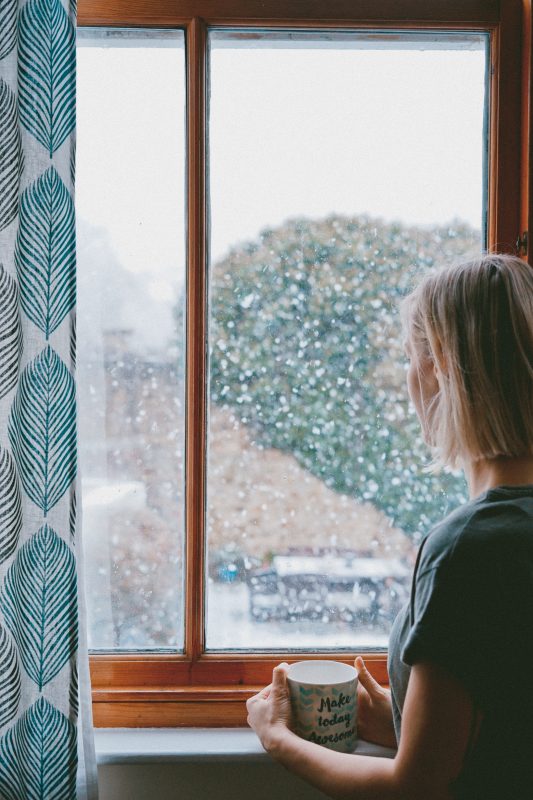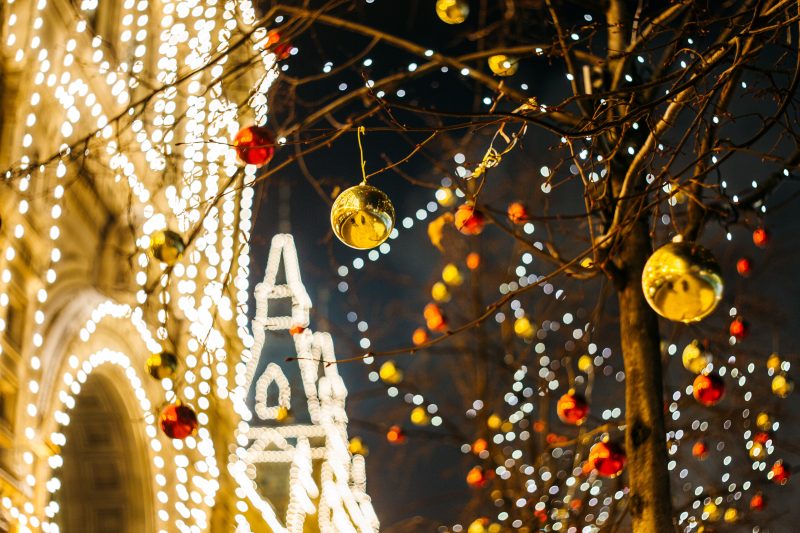By Brandy Mackintosh
When you’re struggling with an eating disorder, the holidays can be very hard.
Considerable emphasis is placed on being happy and carefree, but when every moment of your day is spent battling your eating disorder, that can feel impossible. It’s easy to get caught up in shame feeling that there is something deeply wrong with you for not being able to feel the joy that everyone around you seems to be feeling.
I’ve been there.
 Prior to my eating disorder, Christmas was my favorite time of year and I looked forward to December with pure excitement. However, when I was deeply struggling, Christmas became the time of year I felt most alone.
Prior to my eating disorder, Christmas was my favorite time of year and I looked forward to December with pure excitement. However, when I was deeply struggling, Christmas became the time of year I felt most alone.
The social gatherings focused on food and having to spout a highlight reel of your year to people you only see at the holidays can be incredibly anxiety provoking, and it can leave you feeling inferior to everyone around you. In fact, Christmas became the time of year I dreaded most because I felt immense pressure to pretend and put on a show – no one understood how painful and exhausting it was to fake a smile and battle the voice in my head that told me I was worthless and that I didn’t deserve to eat.
However, when I stepped into recovery, I learned to see the beauty in this time of year and to have compassion for myself; to take care of myself instead of falling into the familiar pattern of self-loathing.
For me, this started with identifying something that I was grateful for every day, no matter how small. My favorite Christmas song played on the radio, I had a mug of my favorite tea, I sat by the fire and read – anything. My list wasn’t filled with grand items, or things that people might tell me I should be grateful for, but it was filled with things that brought me a feeling of calm, appreciation, and peace. One day at a time I sought these moments of stillness and gratitude that slowly led me to feel grateful for more things, more moments, and more aspects of the season.
I also had to learn what works best for me and what I need when my stress levels rise. As an introvert, that personally looks like cultivating time alone to think and breathe and be – whether that is journaling, reading, or watching a movie under the covers. Building these moments of authenticity into my day, where I felt I could truly be myself and express whatever I needed to, helped me through the times when a smile and a highlight reel was needed. I also learned to schedule these moments so they fell before or after (or both) social gatherings to give me time to recharge and lower my anxiety.
I learned how to reach out and ask for help when I was struggling, and to be kind to myself in the moments when my recovery felt shaky. I learned who my support people were, and I used communication with them to remind me that I was strong, I was okay, I was truly loved and valued, and I could make it through.
Finally, I had to make new traditions. I expected (as did many others) that recovery meant I would simply go back to the old way of being before the eating disorder took hold, but the truth is that this journey changes you. I was not the same me that I was before recovery, and it wasn’t fair to expect myself to be. Finding new ways of celebrating the season and building new memories and traditions that felt right for me was a powerful step in reclaiming the love I once felt for this time of year.
If the holidays are hard for you, or you’re feeling anxious about this time of year, please know that you are not alone. We are a community of people that know the struggle that comes with this illness, and we stand with you through this season and always. I have felt the loneliness and shame that you are feeling, and I also know how beautiful it can be to take this season back from the eating disorder’s grip one day, one moment, and one small step at a time.

I encourage you to identify at least one person that you can turn to for support over the holidays (a friend, family member, spouse/partner, counsellor) and if that seems impossible then perhaps consider the peer support programs with Looking Glass.
Take a moment to identify what works best for you when your stress levels rise and things seems overwhelming; maybe it’s time on your own, getting into nature, spending time with animals, or being around other people. It doesn’t matter what it is but try and prioritize it and plan to spend time doing it when the month gets busy and stressful.
Also, know that you don’t have to be the same person you once were, and you do not have to be the person other people want you to be. YOU get to decide who you are and what is important to you, and I encourage you to look for ways to build traditions that feel significant for you. Maybe you need to go to the social gatherings or holiday parties that are challenging because they are important to your loved ones, but maybe you can also celebrate this time of year in a way that brings you joy and honours what you truly need.
Finally, spend time finding at least one thing every day that you can be grateful for – no matter how small. These approaches helped me immensely to not only get through the holiday season when I was beginning recovery, but they helped me learn to love Christmas again and to look forward to it with the excitement I once had. Not because everything is the same now (or because I am the same), but because I have learned to appreciate this season in a way that fits for me. I hope you are able to do the same.
May you find peace this season, and may you know that you are not alone.

Brandy is a Master of Counselling Psychology student at Adler University and is passionate about supporting others on their journey to recovery. She lives in North Vancouver and her favorite things include cats, time spent by ocean, coffee dates, and getting lost in a good book.